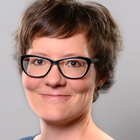Mitarbeiter sonstige
Emerging economies in the post-2015 negotiations: how their positioning will shape the new agenda
Hackenesch, Christine / Heiner JanusMitarbeiter sonstige (2014)
in: Thomas Fues / Jiang Ye (eds.), United Nations Post-2015 Agenda for global development: perspectives from China and Europe, Bonn: German Development Institute / Deutsches Institut für Entwicklungspolitik (DIE), 133-148
ISBN: 978-3-88985-649-4
Almost 15 years later, countries such as Brazil, Russia, India, China and South Africa (BRICS) play a major role on the global stage. A second group of emerging countries, such as Indonesia, Mexico, Nigeria and Turkey, are rapidly gaining importance as economic and political players, especially in their respective regions. The rise of these countries shapes the nature of global development challenges and the instruments used to address them. While poverty remains a key concern, a new agenda has to take into account that the poverty landscape has changed considerably, as most of the world’s poor today live in middle-income countries.
The post-2015 debate holds the potential to generate momentum for a “new bargain” among developing countries, emerging economies and industrialised countries. If a new agenda were to also set goals for industrialised countries and emerging economies, it would become a truly universal development agenda. Whether emerging economies decide to engage or not, they will fundamentally shape the relevance and scope of any global framework. Only if they actively support a universal agenda, a new bargain among developing countries, emerging economies and industrialised countries can be struck. This gives important responsibilities to European countries, which need to make ambitious commitments and conduct negotiations towards increasing the attractiveness of a new agenda for emerging economies.
Contact
Cornelia Hornschild
Publication Coordinator
E-mail Cornelia.Hornschild@idos-research.de
Phone +49 (0)228 94927-135
Fax +49 (0)228 94927-130
Alexandra Fante
Librarian/ Open Access Coordinator
E-Mail Alexandra.Fante@idos-research.de
Telefon +49 (0)228 94927-321
Fax +49 (0)228 94927-130




![[Translate to English:] Photo: Alexandra Fante, Bibliothekarin/Open Access-Koordinatorin](/fileadmin/_processed_/f/0/csm__c_Deutsches-Institut-fuer-Entwicklungspolitik_Fante_94ce4fa1ba.jpg)